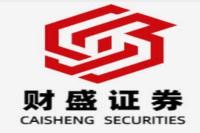Mid-Year Group's Regulatory Snafu: A Deep Dive into Corporate Disclosure Failures and Their Implications
Meta Description: Mid-Year Group's delayed financial reports triggered a regulatory crackdown from the Beijing Securities Regulatory Bureau (BSRB). This in-depth analysis explores the consequences of non-compliance, the role of information disclosure officers, and best practices for corporate transparency in China. Keywords: Mid-Year Group, Beijing Securities Regulatory Bureau (BSRB), corporate disclosure, financial reporting, regulatory compliance, information disclosure officer, China securities regulations, penalty, corporate governance
Imagine this: you're an investor, poring over financial statements, meticulously planning your next move. Suddenly, a critical piece of the puzzle is missing. A company, a seemingly stable entity, fails to release its financial reports on time. The ripple effect? Investor confidence plummets, market volatility spikes, and regulatory scrutiny intensifies. This isn't a hypothetical scenario; it's the harsh reality faced by Mid-Year Group and its information disclosure officer, Ms. Mou Shuyun, following their recent run-in with the Beijing Securities Regulatory Bureau (BSRB). The BSRB's decision to issue a warning letter isn't just a minor administrative hiccup; it’s a stark reminder of the crucial role of timely and accurate financial reporting in maintaining market integrity and trust. This isn't just about numbers on a page; it's about the very foundation of investor confidence, and the potential for significant financial repercussions if companies fail to meet their disclosure obligations. We'll delve into the intricacies of this case, exploring the regulatory violations, the responsibilities of key personnel, and the broader implications for corporate governance in China. We'll also examine the potential impacts on investors and the broader financial ecosystem, offering insights gleaned from years of experience in navigating the complex world of Chinese securities regulations. Get ready to unravel this corporate drama and discover the critical lessons embedded within this high-stakes situation. This isn't just another regulatory action; it's a masterclass in the importance of robust corporate governance and compliance. Let's dive in!
Beijing Securities Regulatory Bureau (BSRB) Action: A Detailed Analysis
The recent action by the BSRB against Mid-Year Group highlights the seriousness with which Chinese regulators view timely and accurate corporate disclosure. The BSRB's warning letter stems from Mid-Year Group's failure to file its 2023 annual report within the stipulated four-month timeframe and its 2024 semi-annual report within the two-month deadline. This blatant disregard for the regulations outlined in the Company Bond Issuance and Trading Management Measures (CSITMM) (Securities Regulatory Commission Order No. 222) has understandably drawn the ire of the regulators. Specifically, the violations pertain to Articles 4, 50, and 51 of the CSITMM, underscoring the comprehensive nature of the company's failure.
This isn't just a technicality; it's a breach of trust with investors and a clear violation of established rules. The BSRB's decision sends a powerful message to other companies operating within the Chinese financial market: compliance is paramount. Cutting corners on disclosure can lead to severe consequences, ranging from hefty fines to reputational damage and even potential delisting from the exchanges.
The BSRB’s action also underscores the personal liability of those responsible for corporate disclosure. Ms. Mou Shuyun, identified as the information disclosure officer, carries significant responsibility for the lapses. This highlights the crucial role of individuals in ensuring compliance and the potential personal consequences of negligence or intentional non-compliance.
The Roles and Responsibilities of an Information Disclosure Officer (IDO)
The IDO holds a pivotal position within any publicly listed company. Think of them as the gatekeepers of transparency. Their responsibilities extend far beyond simply filing reports; they are the bedrock of accurate and timely information flow to investors and stakeholders. In the case of Mid-Year Group, the failure of the IDO to ensure timely filing highlights a critical breakdown in corporate governance.
The IDO's role typically includes:
- Overseeing the preparation and timely filing of all required financial reports: This includes annual reports, interim reports, and any other mandatory disclosures.
- Ensuring the accuracy and completeness of disclosed information: The IDO must verify that all information is correct and complies with relevant regulations.
- Maintaining effective communication with regulatory bodies: This involves prompt response to queries and proactive engagement with regulators.
- Implementing robust internal control systems: This ensures that processes are in place to prevent future reporting delays.
The BSRB's action serves as a sobering reminder of the significant responsibilities and potential liabilities associated with this vital role. A lack of diligence can have far-reaching consequences, impacting not only the company but also the IDO personally.
Understanding the Implications of Non-Compliance
The consequences of Mid-Year Group's non-compliance are multi-faceted and far-reaching. The most immediate consequence is the BSRB's warning letter, a formal reprimand that serves as a public record of the company's failings. This can severely damage the company's reputation and erode investor confidence. Furthermore, it can hinder future fundraising efforts, as investors may be hesitant to invest in a company with a history of non-compliance.
Beyond reputational damage, non-compliance can also lead to:
- Financial Penalties: While the current action is a warning letter, future violations could result in substantial fines.
- Trading Suspensions: In more severe cases, the BSRB might suspend the trading of the company's securities.
- Delisting: Repeated or egregious violations could ultimately lead to delisting from the exchange, a catastrophic event for any publicly traded company.
- Legal Action: Investors who suffered losses due to the delayed disclosures could potentially initiate legal action against the company.
The case of Mid-Year Group serves as a cautionary tale, highlighting the profound and potentially devastating implications of disregarding regulatory requirements.
Best Practices for Corporate Disclosure in China
The Mid-Year Group case underscores the critical need for robust corporate governance and compliance procedures. For companies operating in China, adherence to the CSITMM is non-negotiable. Here are some best practices:
- Establish a clear internal control system for financial reporting: This involves assigning clear responsibilities, establishing reporting timelines, and implementing robust checks and balances.
- Invest in training for personnel responsible for disclosure: Ensuring that individuals understand their obligations and the potential consequences of non-compliance is crucial.
- Maintain open communication with regulatory bodies: Proactive engagement with regulators can help prevent misunderstandings and address potential issues early on.
- Utilize technology to streamline reporting processes: Automated systems can enhance efficiency and reduce the risk of human error.
- Regularly review and update internal policies and procedures: Compliance requirements can evolve, so it's essential to stay informed and adapt accordingly.
Avoiding Future Regulatory Issues: A Proactive Approach
Preventing future regulatory issues requires a proactive and comprehensive approach. Companies should not only comply with the letter of the law but also embrace a culture of transparency and accountability. This means fostering a corporate environment where timely and accurate disclosure is prioritized and where individuals are held accountable for their roles in ensuring compliance. Regular internal audits, independent reviews, and continuous training can significantly mitigate the risk of future regulatory infractions. Investing in robust systems and processes demonstrates a commitment to good governance and instills confidence among investors and stakeholders. Remember, proactive compliance is far more cost-effective than reactive remediation.
Frequently Asked Questions (FAQ)
Q1: What is the CSITMM?
A1: The CSITMM, or Company Bond Issuance and Trading Management Measures, is a set of regulations governing the issuance and trading of corporate bonds in China. These regulations stipulate strict requirements for corporate disclosure, including the timely filing of financial reports.
Q2: What are the penalties for non-compliance with the CSITMM?
A2: Penalties can range from warning letters, as seen in Mid-Year Group's case, to substantial fines, trading suspensions, and even delisting from the exchange. The severity of the penalty depends on the nature and extent of the violation.
Q3: What is the role of the IDO?
A3: The IDO, or Information Disclosure Officer, is responsible for overseeing the preparation and timely filing of all required financial reports, ensuring the accuracy and completeness of disclosed information, and maintaining effective communication with regulatory bodies.
Q4: Can an individual be held liable for a company’s disclosure failures?
A4: Yes, as demonstrated by the BSRB's action against Ms. Mou Shuyun, individuals responsible for corporate disclosure can be held personally liable for non-compliance, highlighting their crucial role in ensuring adherence to regulations.
Q5: What are the long-term consequences of non-compliance?
A5: Long-term consequences can include reputational damage, difficulty in securing future financing, reduced investor confidence, and potential legal actions from affected investors.
Q6: How can companies improve compliance?
A6: Companies can improve compliance by establishing robust internal control systems, investing in employee training, maintaining open communication with regulators, utilizing technology to streamline reporting, and regularly reviewing and updating internal policies and procedures.
Conclusion
The BSRB's action against Mid-Year Group serves as a stark reminder of the paramount importance of timely and accurate corporate disclosure. The failure of Mid-Year Group to meet its reporting obligations underscores the critical role of robust corporate governance, the significant responsibilities of information disclosure officers, and the severe consequences of non-compliance. Companies operating in China must prioritize adherence to the CSITMM and adopt proactive measures to ensure compliance. The case highlights the need for a culture of transparency and accountability, where timely and accurate disclosure is not simply a regulatory requirement but a fundamental principle of good corporate governance. Failure to embrace this philosophy can lead to significant financial and reputational repercussions. Let's hope this case serves as a powerful lesson for all companies, urging them to prioritize transparency and uphold their responsibilities to investors and regulators.



